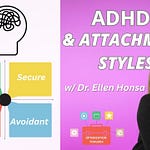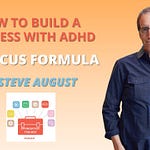Over the past few months, some of my most popular YouTube videos have been about ChatGPT and custom GPTs—how I use them, how to build your own, and why they’re worth setting up. Clearly, it’s something people are curious about. And for good reason.
In this week’s episode of The Optimization Toolbox, I brought on my friend Lori Ryan (aka Lorignite)—someone who also uses AI daily—to break down real-life use cases.
This isn’t “how to use AI to replace yourself.” It’s how to use it as a tool to support your brain, especially if you’re neurodivergent, a solo business owner, or juggling a million things at once.
If you are interested in AI and in the Twin Cities, my friend Caroline Holden started a local meetup!
🧰
AI Tools & Features Recommended
1. ChatGPT (OpenAI)
Custom GPTs for specific tasks (e.g. YouTube, bios, email intros)
Transcription analysis (e.g. timestamping YouTube videos)
Voice recognition for brain dumps or ADHD-friendly workflows
Conversational use on mobile (voice-to-text, video input)
Memory and personalization for crafting your own tone/voice
Live object or image analysis (e.g. stain removal, clothing advice)
GPT as a first-aid kit / decision assistant
2. Deep Research Feature (Paid ChatGPT)
Used for sourcing Reddit hacks, obscure research, liver health, food sensitivities, etc.
Great for fact-checking or getting less obvious insights
3. Claude (Anthropic)
Used for visual, interactive transcripts
Can summarize key quotes, takeaways, controversial moments
Now connects to calendars
4. Tactiq (Transcription Tool)
$12/month transcription for Zoom/Meet/Teams
Great for meeting notes, follow-ups, client deliverables
5. Canva
Used for thumbnail creation after ideating in ChatGPT
6. Google Drive + Calendar Integration
In Team ChatGPT accounts, connect Google Drive & Calendar
Ask: “What documents should go with this GPT?” or “How should I prioritize my day?”
💡Unique Custom GPT Ideas
Doomscroll Detox – Translates heavy news headlines into friendly, digestible formats (spicy, child-like, nerdy, etc.)
Skit Happens – Turns scenarios into SNL-style skits for humor or social commentary
Bio Generator – Writes bios tailored to each audience or event
Intro Email GPT – Introduces two people using their LinkedIn profiles and context
YouTube Content GPT – Processes transcripts into:
Titles
Descriptions
Tags
Timecodes
Newsletter Formatter – Rewrites raw event data into branded, publish-ready content
Shopping Assistant GPT – Uses color analysis and body shape (e.g. Warm Spring, Soft Dramatic) to guide clothing decisions
Interior Design Helper – Uses uploaded images to suggest layout/design improvements
Liver Hack Researcher – Gathers obscure info from forums (e.g. Reddit) to explore liver detox solutions
🧠Tips & Best Practices
Getting Unstuck with ChatGPT
Use it to reduce mental friction (especially with ADHD/ND minds)
Think of it like a “co-pilot” or “thought processor”
Use it to summarize brain dumps, format content, or write drafts
Prompting Strategy
Don’t stop at the first answer — iterate 5–6 times for better output
Give it context, like you would with a new hire
Ask it to review rather than create from scratch if you still want your original voice
Make it ADHD/ND-Friendly
Ask for:
Bullet points
Simplified formats
Short, digestible text
Assume your readers also have short attention spans or processing differences
Use It for Mental Support
Gut-check messages or emails
Ask “What’s the worst that could happen?”
Use it for inner critic dialogues, therapeutic reflection (like exploring attachment styles)
🔗 Unexpected Use Cases
Asking about skin triggers (e.g. “Are blueberries a problem for me?”)
Reviewing spam emails for legitimacy
Creating fake SNL skits for fun
Detecting scams (e.g. “Fan club invite — legit or not?”)
Taking photos of clothing or window blinds and getting advice
Asking it to describe your writing voice
Using ChatGPT during workouts or walks to brainstorm in real-time
🧑💻 Final Advice
Keep the tab open. Use it like Google.
Use a sticky note reminder to ask ChatGPT before you get stuck.
Think of it as part of your everyday thought process, not just a work tool.
Start small (recipes, replies, formatting), then scale to bigger workflows.
🧠 Why it works for my brain
Custom GPTs let me reuse the same prompts, language, and formatting without having to re-explain what I need every time. It’s like building a mini assistant that remembers how I work.
As someone who is neurodivergent, this has been one of the most supportive tools I’ve added to my “optimization toolbox.” It helps me think, write, and execute faster—without the overwhelm of starting from scratch.
🎥 Watch or Listen
In the episode, Lori and I get into even more specific use cases—including her GPTs like “Doomscroll Detox” and “Skit Happens.” We also talk about how these tools support soft skills, relationships, and real-world decision-making.
🎧 Or listen to The Optimization Toolbox wherever you get your podcasts
New Podcast I was on!
🎧 My most ADHD podcast episode yet!
I went full unmasked neurodivergent mode on this one 🙃
Just joined Radio and the Drum Podcast with my good friend Mickeli Bedore, and we covered so much:
⚡️ How TikTok led to my ADHD + autism diagnosis
⚡️ Why I ditched gluten, coffee, and alcohol
⚡️ The real struggles behind entrepreneurship with a spicy brain
⚡️ My fave tools, systems & weird wellness hacks
⚡️ And the tension of living between “too much” and “not enough”
If you’ve ever felt like your brain works differently—this one’s for you. No fluff, lots of rabbit holes, and a whole lot of “same.”
🎙️ Listen to Radio and the Drum — Episode 6: “Finding Your Unique Path” with Jenna Redfield on Spotify











